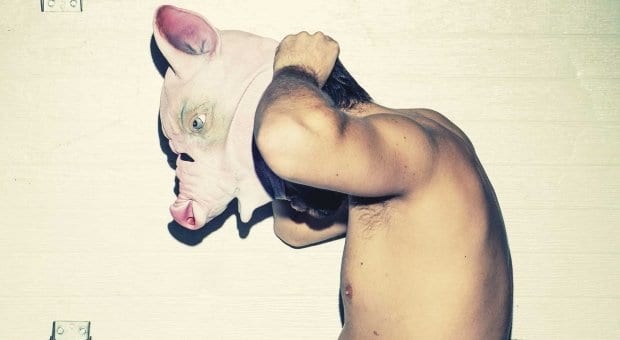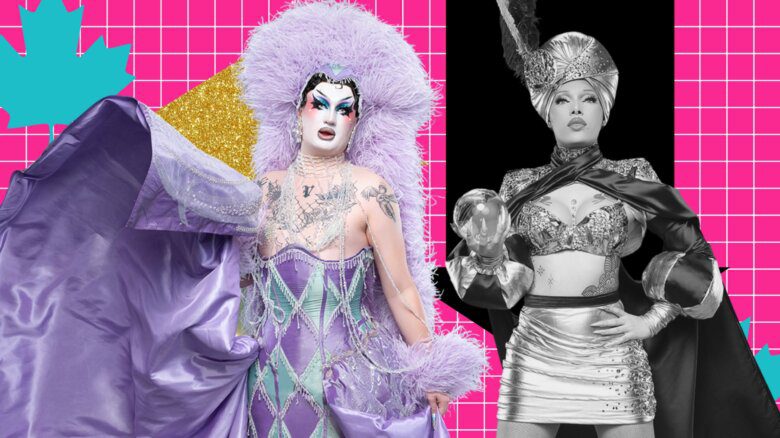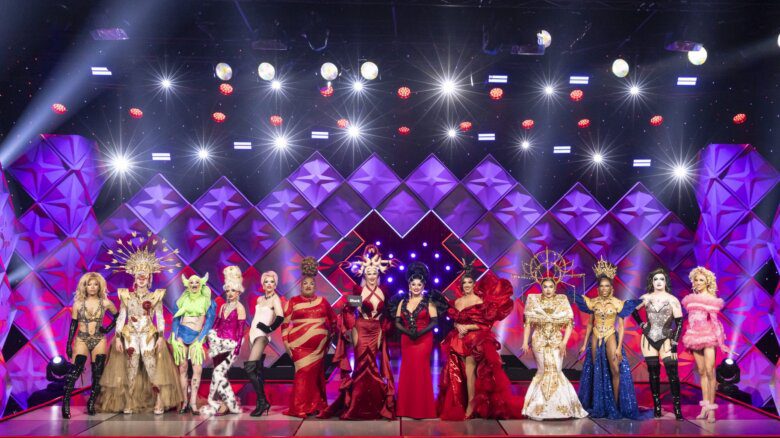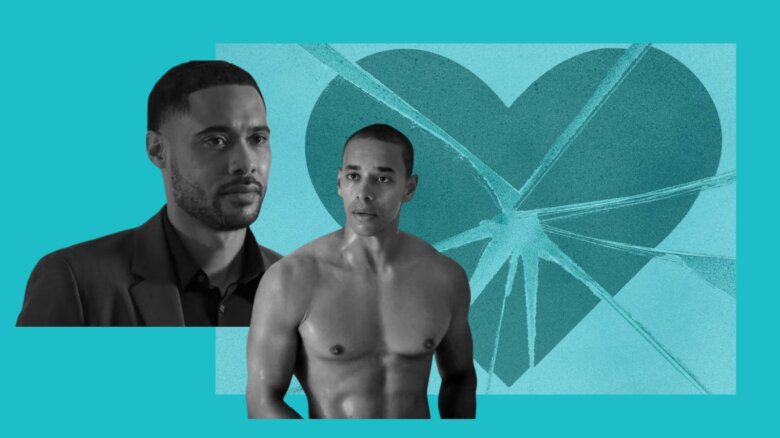British playwright Tim Luscombe first sent Pig to Brendan Healy three years ago. After unsuccessfully shopping the work around to British theatres, Luscombe had heard about a Canadian queer company that had staged fellow Brit Sarah Kane’s Blasted (a similarly controversial and difficult work). Wondering if this place called Buddies in Bad Times might be the one willing to take a chance on his explosive look at extreme sexual practices, he dropped a copy in the mail. But Healy’s initial response was the same as every other artistic director’s: it’s great, but not right for our company right now.
When it came to the 2013/14 season, however, Healy had a change of heart. Four years into his tenure with the company, he felt the time was ripe to take a risk on the script that had been eating at him since it first landed on his desk. That, along with Soulpepper Theatre’s announcement that it would stage Tony Kushner’s Angels in America, sealed the deal.
“It was an awesome choice for Soulpepper to program that show, and it made me want to do something that could run concurrently but which might broaden the discussion around gay male sexuality,” Healy says. “A lot has changed in that realm since Angels was written, and I wanted to create a conversation between these two productions. There are a lot of aspects of gay male sexuality that are rarely talked about except in very clinical, judgmental terms. But Pig really takes on those subjects openly and with a lot of heart.”
While Angels looks at the earliest part of the AIDS epidemic, Pig centres on the last decade. Unfolding over a period of eight years, the play follows two couples (who may in fact be the same couple) as they navigate the most extreme ways to achieve intimacy. Joe (Paul Dunn) and Stevie (Blair Williams), a writer couple with a 13-year age difference and a history of addiction, have had an off-and-on eight-year relationship that started as an online hookup. Pig and Knife (also played by Dunn and Williams, respectively) are a pair of hustlers with a similar age gap, working in the most extreme end of the sex business.
Barebacking, fucking with baseball bats, corporal punishment, blood play, conversion parties, even murder and dismemberment all play into the characters’ fantasies. The subject matter is sufficiently stomach-turning (even for a hardened slut like me), I hypothesize that the front-of-house staff might need to distribute vomit bags before the performance.
“I’m not really thinking about whether someone will throw up, as that’s a pretty extreme reaction,” Healy says. “I like art that makes me uncomfortable, and this play is absolutely constructed to make you feel uncomfortable. I’m not drawn to plays with sexy violence unless there’s a good reason for it. But in this case, what’s happening in the story is very intentional and clear, and it’s making a lot of important points.”
Contemporary gay politics focused on the battles for marriage equality and adoption rights have often centred on crystallizing acceptable images of gay life in the minds of the straight world; think of the barrage of advertisements south of the border featuring happy-looking, conservatively dressed men playing with equally happy-looking, conservatively dressed children.
“When you’re dealing with stories about marginalized communities, there are always dominant narratives that have been established in order to advance those communities,” Healy says. “This play really runs counter to those narratives and says a lot of things we’re not supposed to say, but with a lot of intelligence and integrity. At the same time, I think it’s profoundly beautiful.”
It’s practically unheard of that a highly successful British playwright like Luscombe would turn to Toronto (rather than London or New York) for the world premiere of a play. But beyond the company’s production history and the challenge of finding a home for it elsewhere, Healy sees a clear rationale for presenting the work here.
“We live in a country where gay people can get married, we have a state-funded queer theatre, people can access HIV medications, and gay male sexuality can be depicted without too many negative repercussions,” he says. “Other cultures can’t even begin to deconstruct those things because they don’t even have them. The context this work is being presented in is one of incredible privilege. Because we’re afforded those kinds of freedoms here, it’s our responsibility to then deconstruct, examine and question them so that we’re evolving as a human race.”
Pig
Sat, Sept 14–Sun, Oct 6
Buddies in
Bad Times Theatre
12 Alexander St
buddiesinbadtimes.com


 Why you can trust Xtra
Why you can trust Xtra


